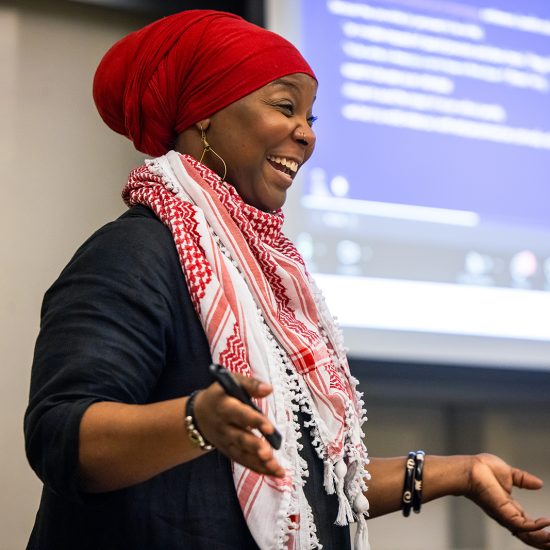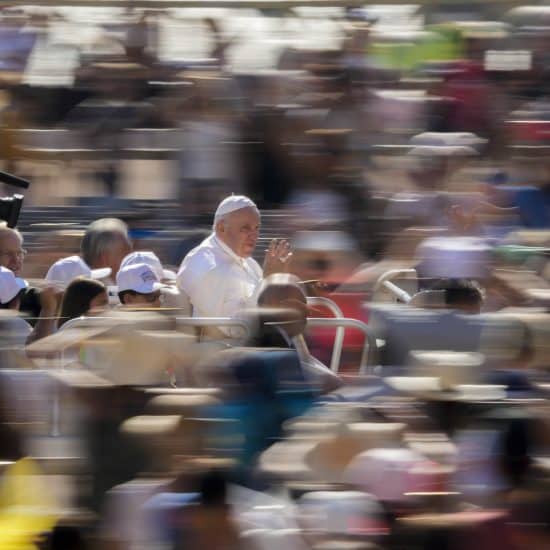WASHINGTON (RNS)—When 19 Muslim men crashed two planes into the World Trade Center on Sept. 11, 2001, it was widely labeled “Islamic terrorism,” even as many Muslims cringed at the term. So, when nine members of a Michigan-based Christian militia, fueled by visions of the apocalypse, laid plans to gun down police officers, is it “Christian terrorism?” Many Muslims, and others, think it should be.
“In cases of violence committed by Muslims, when it’s politically motivated, yes, call it Muslim terrorism. But when other faiths or ideologies commit violence, it has to be the same,” said Alejandro Buetel, the government liaison officer for the Muslim Public Affairs Council in Washington. “We’re calling for consistency.”
Charges filed against the Michigan-based Hutaree militia are just the latest indication terrorism is not unique to Islam, they say, and that other religious and ideological groups can commit violence for their cause.
Muslims aren’t alone in seeing a double standard in the way terrorism is linked to Islam but not often to Christianity or other religions.
“I understand their frustration,” said Joel Hunter, a board member of the National Association of Evangelicals and pastor of Northland Church outside Orlando, Fla., who says the Hutaree militia gives the same bad name to Christianity as Osama bin Laden does to Islam. I can feel what Muslims feel when they watch those mischaracterizations of their faith, and wanting people to know that that’s not what their faith is about.”
The Hutaree militia isn’t the only group that has issued an ideological call to arms. After Congress passed health care reform in March, at least 10 House Democrats reported receiving death threats, incidents of vandalism, or harassment, presumably from conservative opponents. In February, a Texas man, Joseph Stack III, flew his small airplane into an IRS office building in Austin, killing himself and an office worker.
“Terrorism is terrorism, regardless of the faith, race or ethnicity of the perpetrator of the victims,” said Nihad Awad, the executive director of the Council on American-Islamic Relations, in a statement that called on the U.S. government to condemn the Texas attack as terrorism. “If a Muslim had carried out the IRS attack, it would have surely been labeled an act of terrorism.”
Muslims complain that although they and their leaders have condemned terrorism countless times, some of their critics still accuse them of not condemning it strongly enough. Given the recent acts of Christian and conservative terrorism, Muslims leaders said it’s now up to Republicans and other conservative figures to condemn those acts.
“It’s fair enough to say, ‘Where do you stand on this?”‘ said Pamela Taylor, a Muslim activist in Cincinnati.
Despite warnings about right-wing militias and the Hutaree arrests, many Muslims believe conservative figures—especially those who have embraced terminology like “Islamic terrorism”—have remained mostly silent on condemning right-wing violence.
“The inconsistency is politically irresponsible,” Buetel said.
Muslims point to the different labels used to describe Stack, the Texas man who flew his plane into the FBI office, and Army Maj. Nidal Hasan, who’s accused of gunning down 13 people at Fort Hood. Both men showed signs of mental instability, and both had political and ideological motivations for their violence, but Muslims say many of the same people who were quick to call Hasan a “Muslim terrorist” preferred to call Stack “mentally ill.”
Muslim commentator Yasmin Mogahed, writing on Huffingtonpost.com, pointed out that after the Hutaree arrests, she saw no experts on TV exploring whether Christian doctrine condones violence, the same way experts often are invited to search the Quran for verses condoning violence.
“If there’s news of a Muslim terrorist, Islam becomes complicit in the crime. Yet few people are going to accuse Christianity of motivating the terrorism of the Hutaree militia,” she wrote.
Despite their grievances, most Muslims interviewed said they don’t want people to start using the term “Christian terrorism,” but prefer that no religious adjective precedes “terrorism.”
“There shouldn’t be any schadenfreude (pleasure derived from someone else’s discomfort). That’s a selfish motivation that doesn’t serve the greater good,” said Taylor. “The idea of Christian terrorism is ludicrous, in terms of theology, just like the idea that Islamic theology is responsible for terrorism is also ludicrous.”
Even though other faiths are now exposed to the same association with violence that has dogged Islam in recent years, Muslims are keeping their expectations low that anything will change.
“Muslims are still ‘the other,’ and it’s easier to say Muslims are violent or prone to terrorism,” Taylor said. “But Christianity is something very familiar to most people in America, and it’s hard for people to say ‘Christian terrorism.’”






